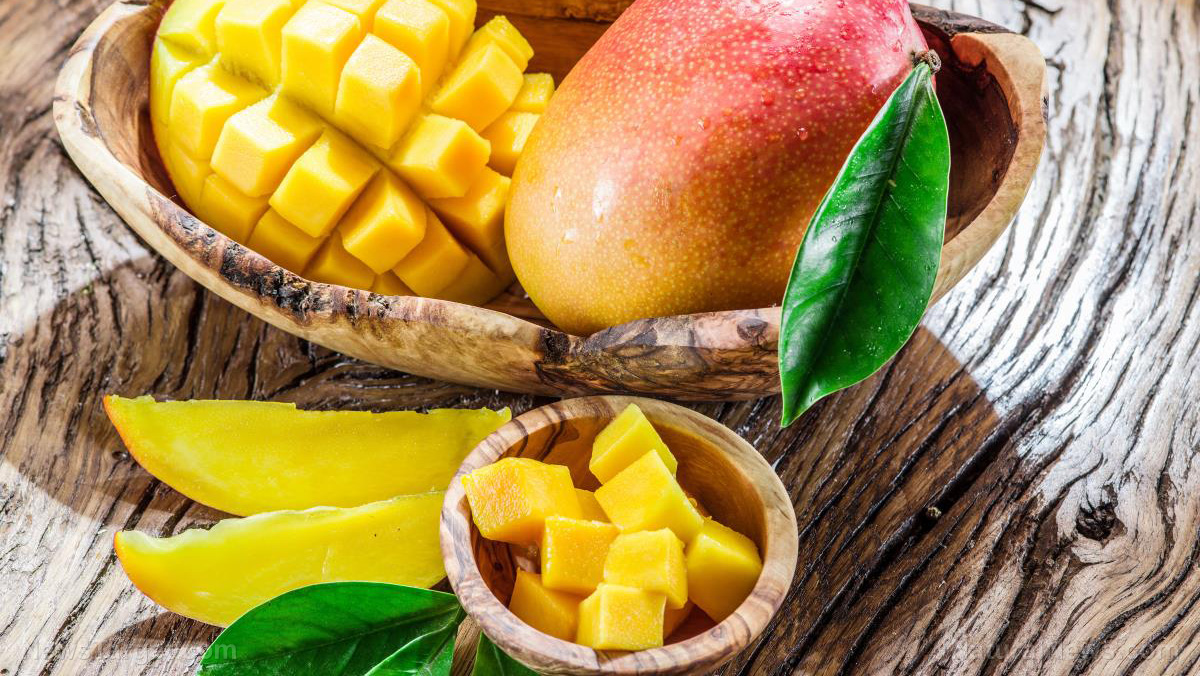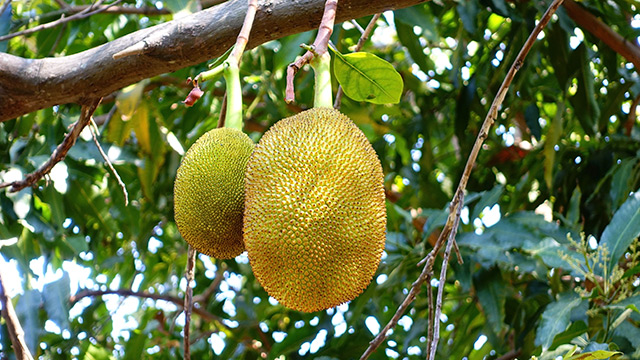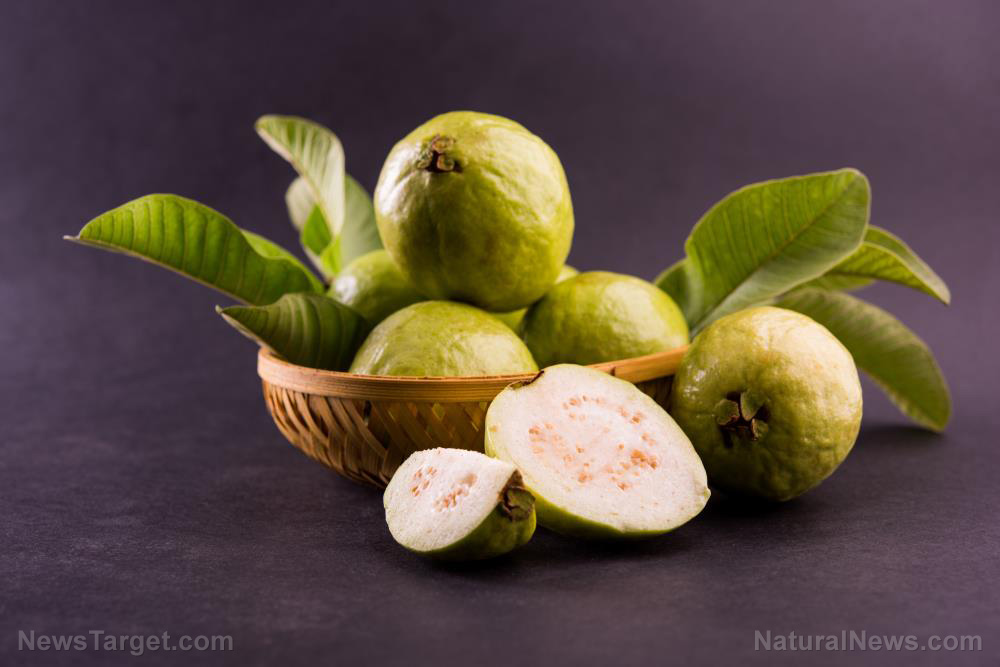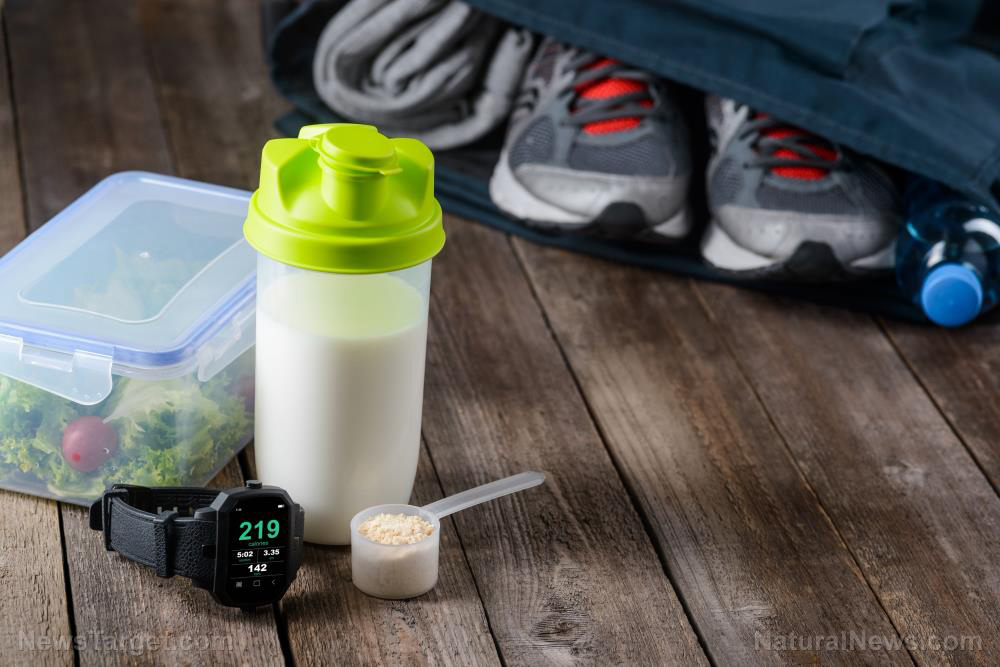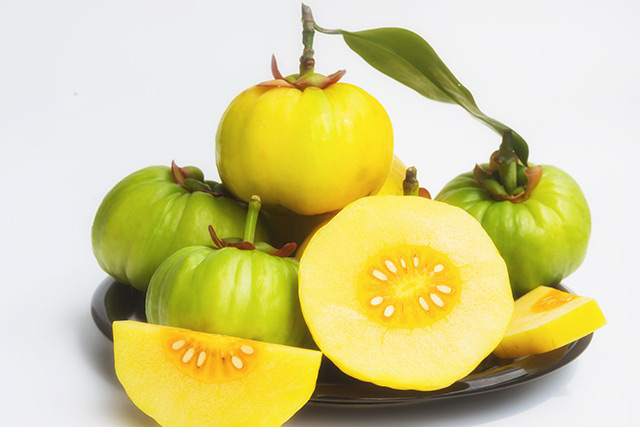The power of dates: A sweet superfood from ancient times
02/10/2025 / By Zoey Sky

- Dates are the sweet, nutrient-rich fruits of the date palm tree, cherished for thousands of years. They are oval or cylindrical in shape, with a caramel-like flavor and chewy texture, and are considered a versatile superfood in modern diets.
- Dates have been cultivated since 4,000 BCE in ancient Mesopotamia and are native to the Middle East.
- Dates are packed with essential nutrients, including fiber, potassium, magnesium, copper and B vitamins like B6 and niacin.
- Dates provide numerous health benefits, including preventing anemia and regulating blood sugar.
- Dates are a versatile cooking ingredient that can be used in sweet and savory dishes like date-sweetened smoothies and Moroccan tagine.
Dates, the sweet fruits of the date palm tree (Phoenix dactylifera), are a nutrient powerhouse that has been cherished for thousands of years. These small, oblong-shaped fruits are not only a delight to the palate but also a treasure trove of health benefits. With their rich, caramel-like flavor and chewy texture, dates have earned their place as a versatile superfood in modern diets.
Read on to learn more about the history, nutritional profile, health benefits and culinary uses of dates and why this ancient fruit deserves a spot in your pantry.
A closer look at dates
Dates are typically oval or cylindrical in shape, ranging from one to three inches in length. Their color varies depending on the variety and ripeness, spanning shades of amber, deep brown and even black.
The fruit’s skin is slightly wrinkled, while the flesh is dense and sticky, encasing a single, elongated seed. Dates are naturally sweet, with hints of caramel, honey and butterscotch, making them a popular natural sweetener in both traditional and contemporary cuisines.
Historical and cultural significance
The cultivation of dates dates back to around 4,000 BCE in ancient Mesopotamia, where they were considered a staple food. The date palm is believed to have originated in the Middle East, particularly in regions now known as modern-day Iraq and Egypt. Over time, its cultivation spread across North Africa, the Arabian Peninsula and parts of South Asia.
Today, dates are grown in arid and semi-arid regions worldwide, with Egypt, Saudi Arabia, Iran and Algeria being among the top producers.
The date palm holds cultural and religious significance in many societies. In Islam, dates are traditionally eaten to break the fast during Ramadan, while in Christianity, they are sometimes associated with the biblical “land of milk and honey.”
The date palm tree’s resilience in harsh climates and its ability to provide sustenance in desert regions have earned it the nickname “the tree of life.”
Nutritional composition and phytonutrients
Dates are a rich source of essential nutrients, including dietary fiber, vitamins and minerals. They are particularly high in potassium, magnesium and copper, which are known to support heart health, muscle function and energy production.
Dates also contain significant amounts of B vitamins, such as B6 and niacin, which play a role in metabolism and nervous system health.
One of the most remarkable aspects of dates is their phytonutrient content. These bioactive compounds have antioxidant, anti-inflammatory and disease-fighting properties. (Related: Here are 10 kiwifruit benefits you shouldn’t miss out on.)
Dates are rich in flavonoids, carotenoids and phenolic acids, which help neutralize free radicals and reduce oxidative stress in the body.
Specific phytonutrients in dates include:
- Beta-carotene – A precursor to vitamin A, beta-carotene is essential for vision and immune function.
- Gallic acid – A phenolic acid known for its antimicrobial and anticancer effects.
- Lutein and zeaxanthin – These carotenoids support eye health and may reduce the risk of age-related macular degeneration.
- Quercetin – A flavonoid with anti-inflammatory, antioxidant and antihistamine properties.
Health benefits and potential therapeutic uses
The nutrient-dense profile of dates makes them a valuable addition to a healthy diet. Research suggests that consuming dates may help prevent or alleviate several health conditions:
- Anemia prevention – Dates are a good source of iron, making them a great food for people with or at risk of iron-deficiency anemia.
- Blood sugar regulation – Despite their natural sweetness, dates have a low glycemic index (GI) and can be consumed in moderation. Their fiber and polyphenol content may improve insulin sensitivity and help manage blood sugar levels.
- Bone health – Dates contain essential minerals like calcium, phosphorus and magnesium, which are needed for maintaining strong bones and preventing osteoporosis.
- Cognitive function – The antioxidants in dates, particularly flavonoids, may protect brain cells from oxidative damage and reduce the risk of neurodegenerative diseases like Alzheimer’s.
- Digestive health – The high fiber content of dates can promote regular bowel movements and may help prevent constipation. Soluble fiber also supports gut health by feeding beneficial gut bacteria.
- Heart health – Dates are rich in potassium and magnesium, which help regulate blood pressure and reduce the risk of cardiovascular diseases. Their antioxidant properties can also protect against arterial plaque formation.
Culinary applications and recipe ideas
Dates are incredibly versatile and can be incorporated into a wide range of sweet and savory dishes. Here are some recipe ideas that showcase the fruit’s natural sweetness and texture:
- Date and nut energy balls – A no-bake snack made with dates, nuts and seeds, perfect for a quick energy boost.
- Date and oat bars – A wholesome breakfast or snack bar made with oats, dates and a touch of honey.
- Date-sweetened smoothies – Blend dates with bananas, almond milk and spinach for a naturally sweetened green smoothie.
- Moroccan tagine – A savory stew featuring dates, lamb and aromatic spices like cinnamon and cumin.
- Stuffed dates – Medjool dates filled with almond butter, goat cheese or dark chocolate for a decadent treat.
Dates are more than just a sweet indulgence; they are a nutrient-dense superfood with a rich history and a host of health benefits. From supporting heart and digestive health to being a natural source of energy, dates are a testament to the power of whole, plant-based foods.
This story is not medical advice and is not intended to treat or cure any disease. Always consult with a qualified naturopathic physician for personalized advice about your specific health situation or concern.
Visit NaturalNews.com, a great article source where you can learn about superfoods and their health benefits.
You can also try Brighteon.ai, an AI model created by Mike Adams, also known as the Health Ranger. This model is available as a free download to be run locally and is designed to help share and decentralize knowledge. By doing so, it aims to bypass censorship and empower people with knowledge.
If you’re looking for an uncensored video free speech website where you can openly discuss nutrition, natural medicine, ingredients and more, check out Brighteon.com and out two free speech social media sites, Brighteon.IO and Brighteon.social.
Watch this clip about the other health benefits of incorporating sweet dates into a balanced diet.
This video is from the All About Herbs channel on Brighteon.com.
More related stories:
Superfruits for good health: Boost your daily protein intake with delicious apple cinnamon muffins.
STUDY: Eating foods high in flavonols (like quercetin) can help you stay strong as you age.
5 Remarkable ways GARLIC can support your health, according to science.
Sources include:
Submit a correction >>
Tagged Under:
#nutrition, antioxidants, dates, food cures, food is medicine, food science, Fresh, fruits, grocery, health science, natural cures, natural health, natural medicine, nutrients, organics, prevention
This article may contain statements that reflect the opinion of the author




